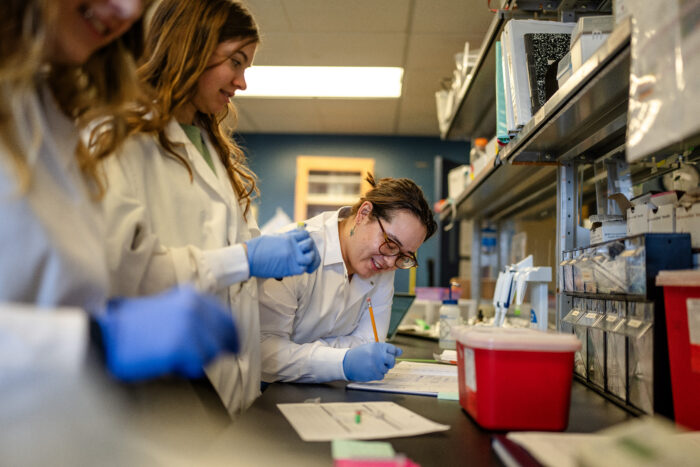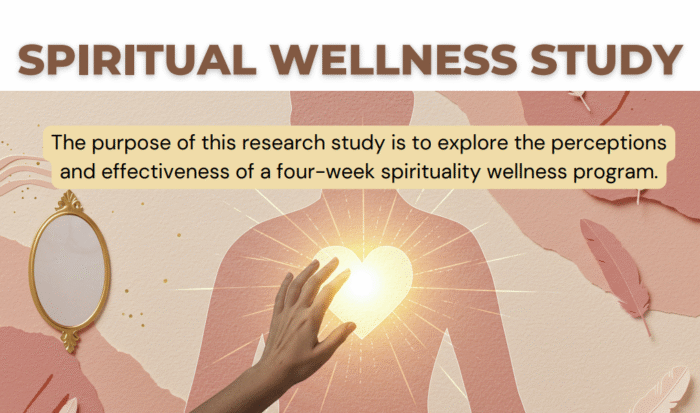This past October, four College of Health Sciences students received $5,000 from the Athletic and Human Performance Research Center Student Research Initiative to pursue undergraduate research.
Supporting the global goal of the AHPRC to facilitate interdisciplinary, collaborative and innovative research to understand and enhance performance in athletic, health and clinical populations, each student will use the money to pursue their projects and kickstart their research interests.
One of those students is exercise physiology major Grace Tostrud — who is conducting her research in Physical Therapy Assistant Professor Dr. Jacob Capin’s Life After Sports Trajectories (LAST) Lab. Grace is research is titled “Bone density in athletes participating in jumping, cutting and pivoting sports: an understudied population.”
Grace sat down for a Q&A with Marquette Today to talk about her study and her research aspirations.
What inspired your research? How did you get interested in the topic?
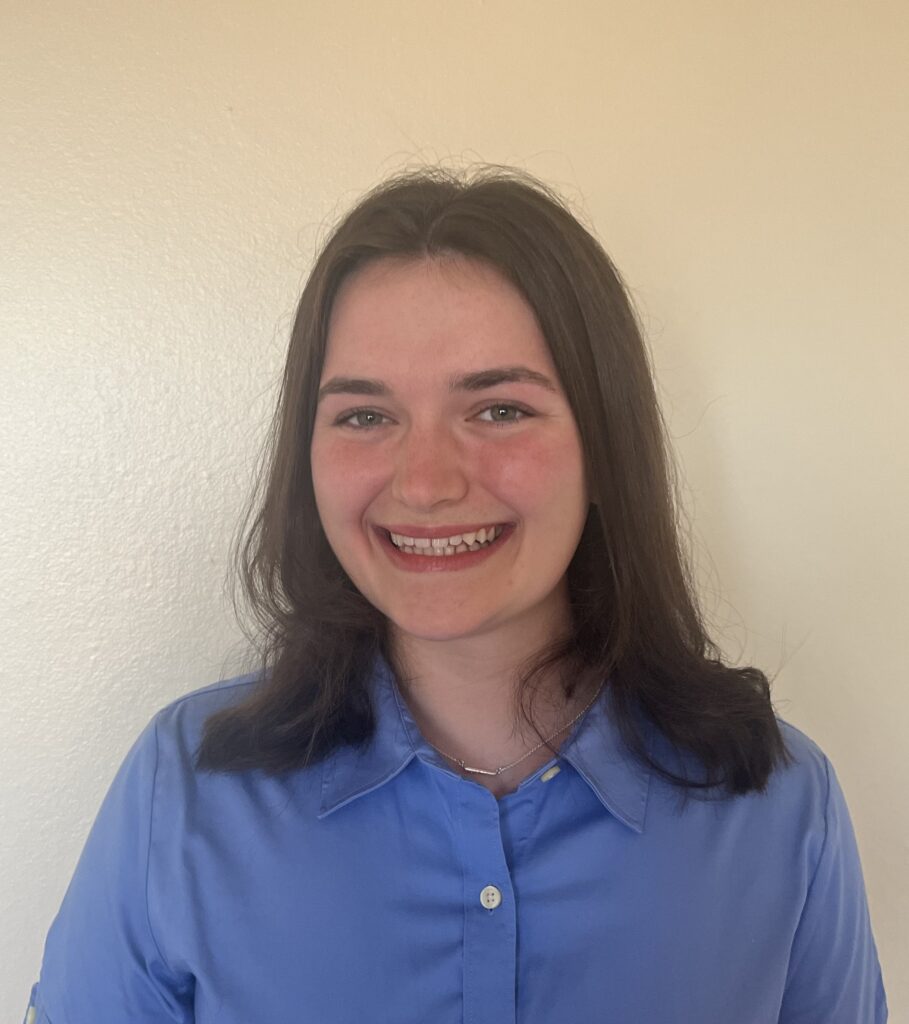
Studying bone density seemed like an obvious way to link nutrition to the athletes we are observing. As I did more preliminary research into the topic, it reinforced my desire because much of the research involving bone density in athletes surrounds runners. The athletes we study in the LAST Lab participate in jumping, cutting and pivoting sports such as football, volleyball and basketball. With the popularity of those sports on the rise across the country, this research is very necessary. This is of special interest to me because these are sports I grew up playing — so it adds a personal factor.
I took a nutrition class last fall with Ken Knetzger, clinical assistant professor of exercise science, which sparked my interest in nutrition and how it affects so many aspects of life. As part of the research study in Dr. Capin’s lab, we are already collecting dietary information from participants, so I knew I wanted to find a way to incorporate that wealth of information into my project.
What are your post-graduate aspirations and how does your research inform your plans for your career?
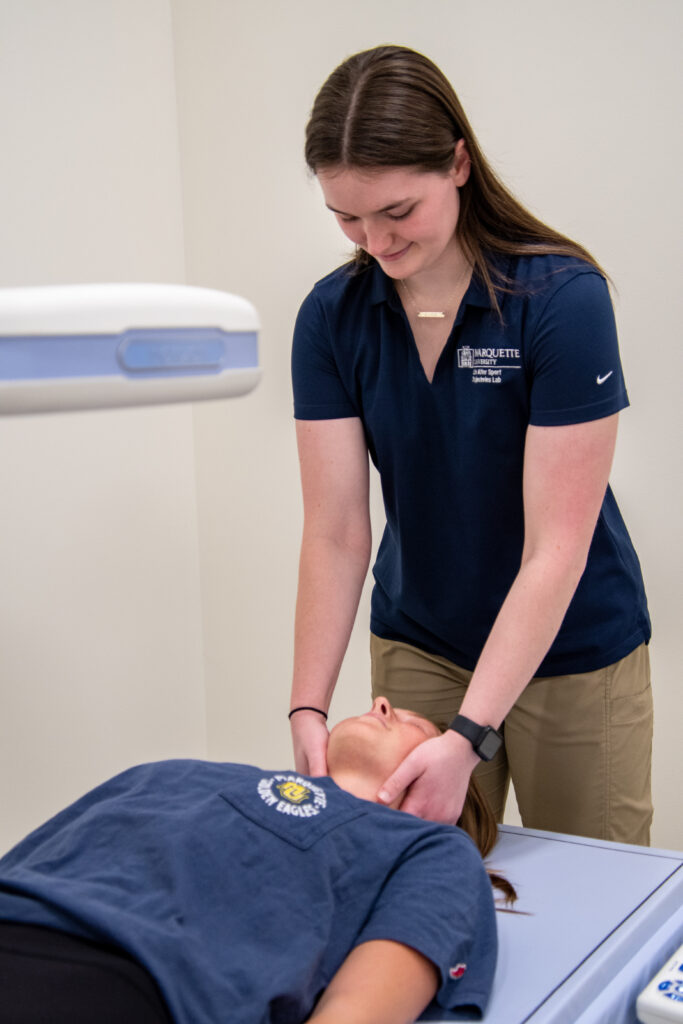
Post-graduation, I would love to work as a physical therapist on a sports team – either at the collegiate or professional level – to have the opportunity to work with elite athletes. Our research is being conducted on collegiate athletes, so it would be directly applicable to many athletes I encounter in my future career. My hope is the knowledge and experience I gain from the research process will help inform how I rehab and counsel not only athletes but also all my patients in the future.
What has been something interesting you’ve encountered while conducting your research thus far? Or something interesting you’ve seen while planning that made you rethink your approach?
Something I have found interesting is how much research is available on bone density in runners — especially female runners — but the overall lack of data on the athletes we study in the lab. I thought it was really interesting because sports like football, basketball and volleyball are immensely popular across the country, so I assumed it would be a much more studied area.
How has Dr. Capin assisted you in your research?
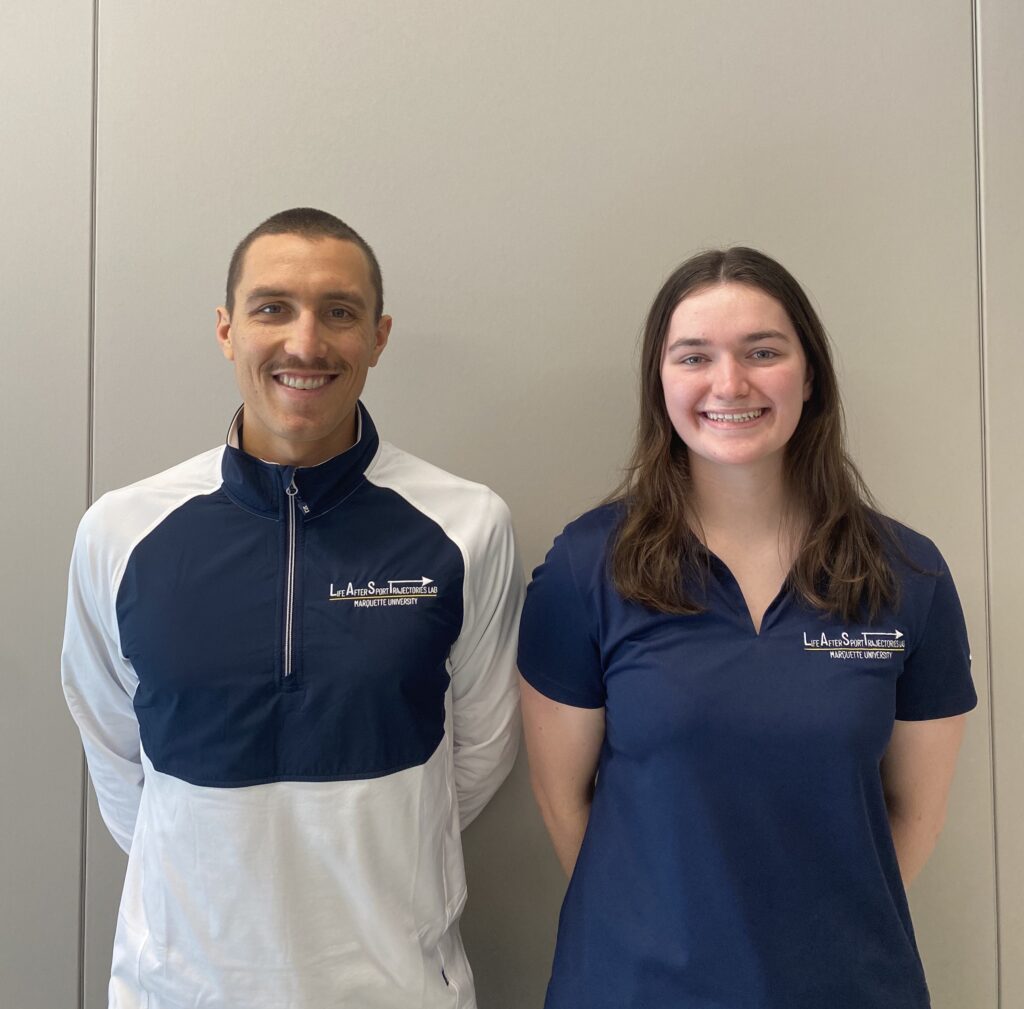
Dr. Capin has been an invaluable resource throughout this entire process. He has believed in my idea and encouraged me to make this project my own while also helping refine my ideas so I can maximize this research opportunity. Additionally, the entire LAST Lab team has been very supportive of my project and given me lots of constructive feedback. Overall, I am very thankful for the opportunity to participate in the Student Research Initiative and the support Dr. Capin and the rest of the LAST Lab team have provided me.
How does being able to do research as an undergraduate assist you in your pursuit of a degree? Has it empowered your work in the classroom?
Participating in research as an undergraduate has been a really special experience because it has given me a lot of hands-on experience. Through my involvement in the LAST Lab, I have gained confidence in my interactions with research participants which is transferable to interactions with future patients. I have also been exposed to many different opportunities to advance my knowledge whether it be through seminars, by interacting with visiting faculty and researchers, or by tapping into the vast knowledge the members of the lab team bring.
Over the past year, I have seen the confidence I have gained in the lab transfer to my work in the classroom. I am more sure of myself and my skills, and I have also been empowered to ask questions rather than feeling like I need to have all the answers. Joining the LAST Lab has opened many doors — one of which is the SRI — and it has been one of the best decisions of my college career!
